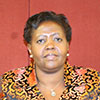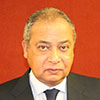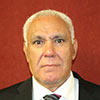African Peer Review Mechanism working for the peoples of Africa: a decade of self-assessment
Background
The African Peer Review Mechanism (APRM) was established on 9 March 2003 by the Heads of State and Government Implementation Committee (HSGIC) of the New Partnership for Africa’s Development (NEPAD) as an instrument for self-monitoring for better governance.
The APRM has, at its fulcrum, the deepening of democratic practices, with a view to strengthening achievements, disseminating best practices and rectifying underlying deficiencies in governance and socio-economic development processes among AU Member States. The aim is to encourage and build transformative leadership and constructive national dialogue, through an inclusive and participatory self-assessment process, and foster policies and practices that would lead to the attainment of the NEPAD objectives of political stability, high economic growth, sustainable development and accelerated sub-regional and continental economic integration.
Since its inception, the APRM has made significant progress in terms of the number of countries that have acceded to the Mechanism, the rolling-out of the review exercise, the deepening of the review process, as well as the level of participation and engagement of stakeholders. Indeed, APRM membership has grown steadily since 2003. In 2013, APRM has a membership of 33 countries that have voluntarily acceded. The countries are: Algeria, Angola, Benin, Burkina Faso, Cameroon, Chad, Djibouti, Egypt, Ethiopia, Gabon, Ghana, Kenya, Lesotho, Liberia, Malawi, Mali, Mauritania, Mauritius, Mozambique, Niger, Nigeria, Republic of Congo, Rwanda, Sao Tome & Principe, Senegal, Sierra Leone, South Africa, Sudan, Tanzania, Togo, Tunisia, Uganda, and Zambia.
Seventeen (17) of these countries have completed their self-assessment exercise and have been peer-reviewed by the Forum of Heads of State and Government. They are: Ghana, Rwanda, Kenya, South Africa, Algeria, Benin, Uganda, Nigeria, Burkina Faso, Mali, Mozambique, Lesotho, Mauritius, Ethiopia, Sierra Leone, Zambia and Tanzania.
The benefits derived from the APRM cannot be overemphasized. The Mechanism has opened up the political space for citizens’ participation in policy debates, fostered national dialogue, and increased advocacy for good governance and improved service delivery. In some countries, its findings have warned of impending crises, and indeed when crises erupted, APRM findings provided a useful framework for reform. The APRM has created a platform for African peer learning and sharing of experiences and best practices.
The APRM National Programme of Action (NPoA), which emanates from the review exercise, is of crucial importance. The value addition of the mechanism lies in the implementation of the NPOA recommendations. Peer-reviewed countries, have implemented, albeit at various degrees, the recommendations of the NPoA.
Indeed, while a lot has been achieved in terms of countries that have voluntarily joined and agreed to subject themselves to peer review, much remains to be done in the areas of increasing public awareness, ensuring national ownership, an inclusive participatory process for all key stakeholders, and an effective implementation of the recommendations emanating from the reviews.
As the APRM marks its 10th Anniversary in 2013, it is imperative to reflect on its achievements and the challenges it is facing with a view to improving its tools and processes and enhancing its effectiveness over the next decade.
APRM Panel of Eminent Persons Delegation

Ambassador Fatuma Ndangiza Nyirakobwa
Vice Chair, APR Panel of Eminent Persons

Ambassador Ashraf Rashed
Member, APR Panel of Eminent Persons

Dr. Mustapha Mekideche
Member, APR Panel of Eminent Persons
The Celebrating APRM @ 10 – DIALOGUE is part of a series of events organized to commemorate the 10th anniversary. The session will provide an opportunity for leaders from the African diaspora, representatives from non-governmental organizations and civil society organizations, including youth and women’s groups, academia and the media to discuss the APRM’s achievements, best practices and challenges over the last 10 years. The session will explore future prospects for enhancing the Mechanism’s contributions to political and economic integration, equitable growth and inclusive sustainable development that will ensure a peaceful and harmonious future in the African continent.
Twitter: https://twitter.com/APRMorg
Hashtags: #APRM #Africa-#NEPAD, #DIALOGUE
Facebook: https://www.facebook.com/AfricanPeerReviewMechanism?ref=hl
Statements and Remarks
Secretary-General Ban Ki-moon — Remarks
Under Secretary-General and Special Advisor on Africa, Mr. Maged Abdelaziz — Remarks
Vice Chairperson of the APR Panel of Eminent Persons, Ambassador Fatima Nyirakobwa Ndangiza — Opening Statement | Presentation
NEPAD Chief Executive Officer Dr. Ibrahim Assane Mayaki — Statement
Member of APR Panel of Eminent Persons, Ambassador Ashraf Rashed — Remarks
Member of APR Panel of Eminent Persons, Dr. Mustapha Mekideche — Remarks (French)
Republic of Liberia Minister of Finance and Chairperson of the APRM Focal Points Committee, H.E. Amara M. Konneh — Statement
Permanent Representative of Tanzania, H.E. Tuvako N. Manongi — Statement
Permanent Representative of Ethiopia, H.E. Tekeda Alemu — Remarks

